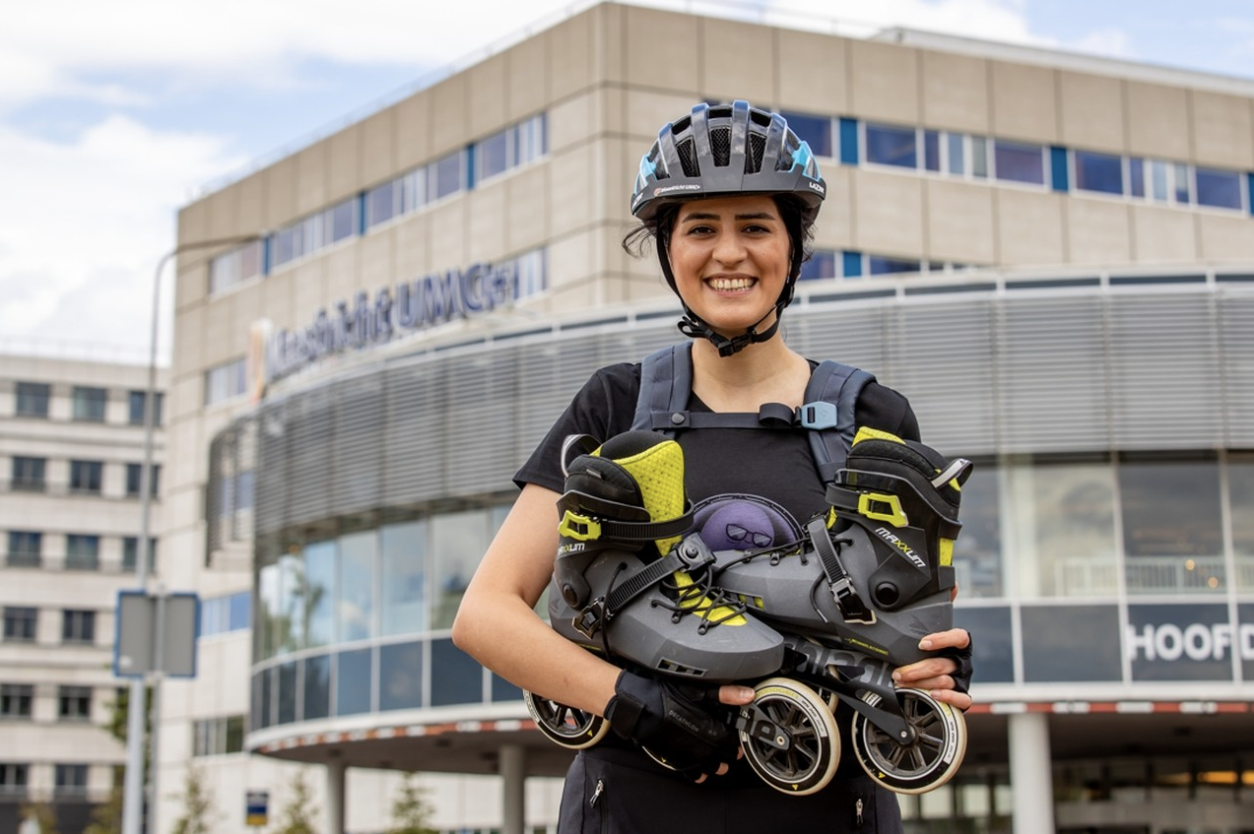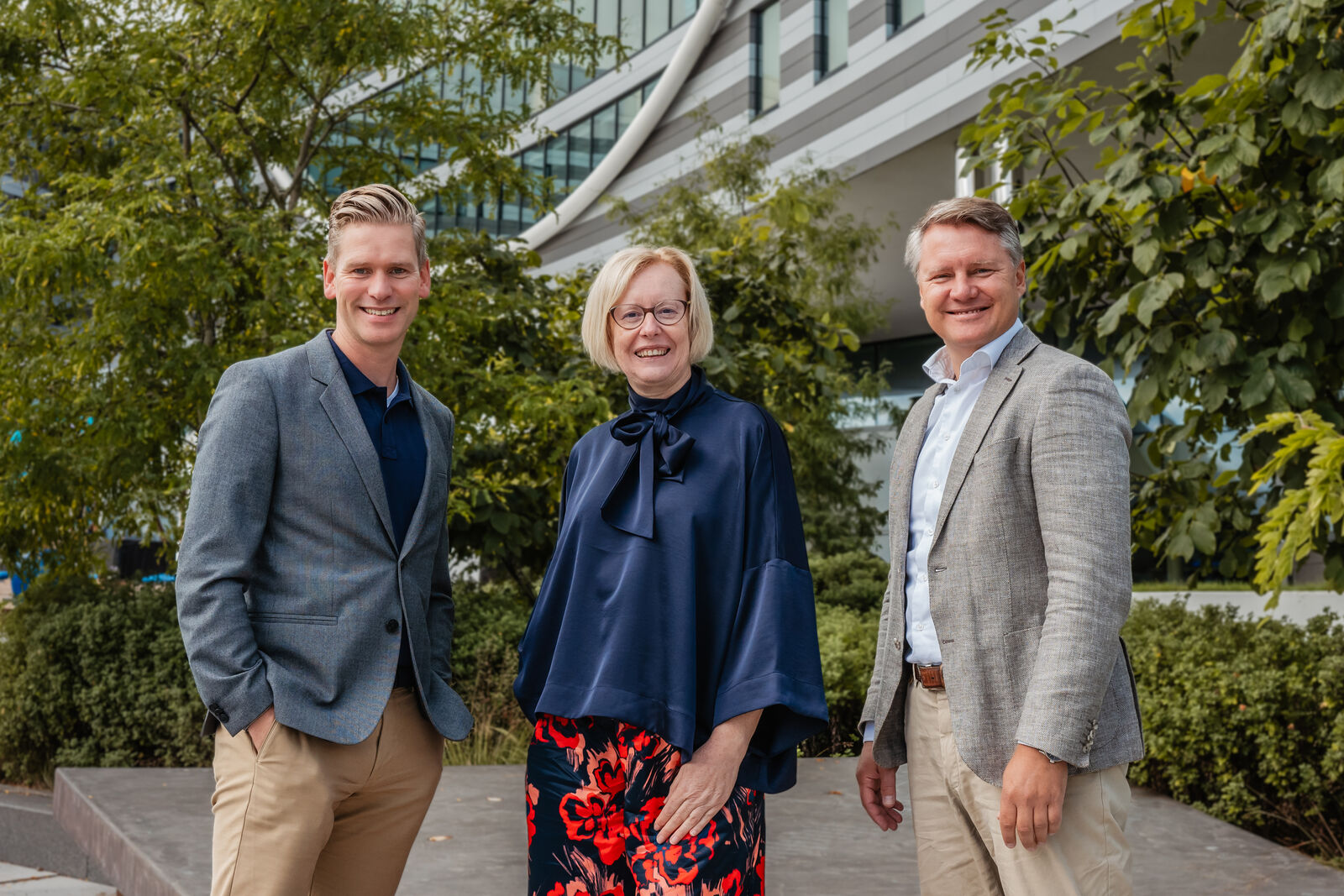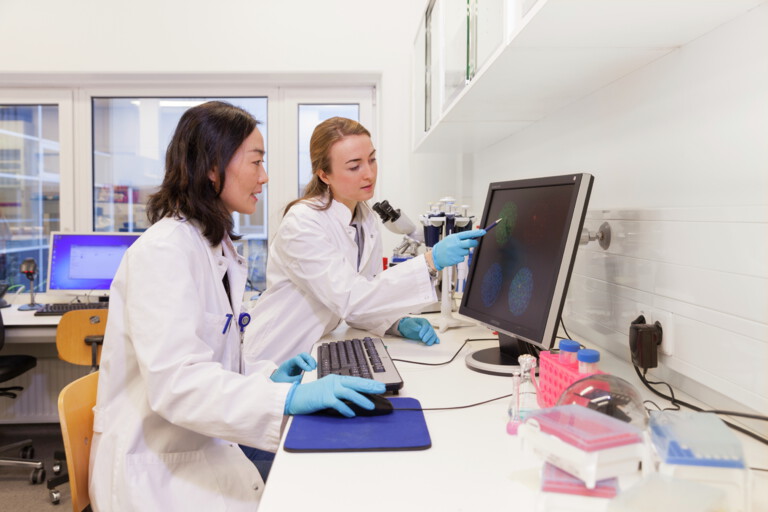On a roll for dementia
In a world-record attempt, Golnaz Atefi is taking her interdisciplinary research into Alzheimer’s and dementia care onto the road: 1000km on roller-skates to talk to people with dementia, their families, researchers and care professionals. All to raise awareness about the importance of inclusivity and make sure new technological solutions benefit as many people as possible.
It will be 1000km of roller-skating; it will be a world record. And Golnaz Atefi is happy to admit that it’s a stunt to get attention. The UM PhD candidate in Dementia and Technology is fronting the #RollingforDementia campaign, which will take her all the way around the Netherlands and culminate in a visit to the Alzheimer Europe congress in Geneva (and, presumably some kind of foot spa).
Atefi is about to head out and brave a particularly capricious Dutch autumn day to roll to meet the head of one of the Netherlands’ Alzheimer centres. She will meet many professionals in Alzheimer care around the country. The choice of roller-skates is significant. “I got my first pair of roller-skates from my grandparents. Skating reminds me of my grandparents, of love and of a sense of home,” she reflects, probably grateful her grandfather didn’t gift her a pair of cross-country skis.
Her grandfather had dementia. “I think I was too young to understand what was going on. When he called me by the wrong name, I thought it was a silly game and would also call him by a wrong name, and we would laugh together. But at later stage it sparked my curiosity and my desire to understand neurodegenerative diseases better.” After studying cognitive neuroscience and clinical neuropsychology, Atefi received a Marie Skłodowska-Curie grant to pursue a PhD at UM. Her current research fellowship is financed by Alzheimer Netherlands.
Steering technological development
The world-record attempt is just media-savvy framing. All of Atefi’s stops will serve her research into how inclusivity can improve the quality of life of people with dementia and those close to them. “For example, we use technological innovation to make a difference in people’s life. But it’s important to understand that we might not have all subtypes of people in mind when we are developing interventions. There is still a gap between what works well in evidence-based practices within academia and the strategies we have in place for their adoption, integration, and sustainability in real-world settings.”
Atefi noticed that not all subtypes of people with dementia are well represented in the data. Accordingly, the solutions developed aren’t tailored to everyone’s needs. “There are many minority groups that are falling through the cracks because we don’t know enough about them.” The term minority is often conceived of in terms of ethnicity or sexual identity and while this can apply here too, “it can be about specific sets of symptoms or manifestations of a disease. The needs of family caregivers also vary. The caregivers’ skills and life-circumstances change over time. It’s an incredibly diverse group.”
“Take for example early-onset dementia. They are also considered a minority within the broader dementia population. Not only are the symptoms different but also the life situation. These people might still be working. They might have children that need care rather than being able to provide it.” She stresses that technology has tremendous potential but that we need a clear idea of the specific problems and contexts. “It’s important to be inclusive and ensure that as many people as possible benefit from these new developments.”
It’s important to be inclusive and ensure that as many people as possible benefit from these new developments.
Golnaz Atefi
Skate & collate
Her itinerary includes meeting a veritable who’s-who of dementia research and treatment. “I’m really grateful to all those very busy professionals and researchers who are making time for this cause. The other day, a leading researcher talked to me even though she was on leave and close to giving birth.” Atefi is keen to point out that she also spends a lot of time talking to the “dementia community, i.e. people with dementia but also family members providing care. I want to understand the lived experience of those who don’t typically participate in research. To provide inclusive treatment, we need to hear unheard voices.”
Atefi spends her evenings writing up all her findings and preparing social media posts. These will benefit her research but also the dementia awareness campaign. Beyond that, she also plans to make the main takeaways accessible to the broader public. Her PhD research focuses on social health, in particular the psychosocial side of dementia care. “We know that meaningful connections and social engagement are really important to wellbeing and long-term health outcomes, so I want to gather more insights from the interviews and also disseminate them to a broader audience to raise awareness.”
Wheeled Hermes
Atefi’s inline odyssey is not just about gathering data but about carrying a message. “For all the technological and pharmaceutical fixes we will develop, we also need to work towards a more dementia-friendly society. We need to break the stigma and support people with dementia and families to better engage with society, feel a sense of belonging, and carry out their daily activities with dignity.”
At the same time, she wants to raise awareness among the general population. “Inform yourself about dementia, about the risk factors and what you can do to prevent it. Research shows that our lifestyle can influence the risk of developing dementia.” More understanding will also make for a more compassionate society. “However, a diagnosis of dementia is not the end of the world – with the right support, people with dementia can continue to live meaningful, fulfilling lives and stay engaged with their communities. One of the things I’ve learnt is that the fear and stigma around dementia is because of a lack of education around the topic.”
Atefi is now approaching the halfway-mark of her journey. “I’m excited; I’ve been training a long time for this.” In 2020, during the first year of her PhD, she skated 230km to raise awareness and funds for the Alzheimer Centre Limburg. “It was a pleasure and the positive reactions have inspired me to try this on a larger scale. So yes, it is physically demanding – but it’s also a mental thing. The enthusiasm and positivity I get back from people really gives me a lot of energy.”
Text: Florian Raith
Photo: Jean-Pierre Geusens
A diagnosis of dementia is not the end of the world – with the right support, people with dementia can continue to live meaningful, fulfilling lives and stay engaged with their communities.
Golnaz AtefiAlso read
-

Led by our researcher and geneticist Masoud Zamani Esteki, researchers at Maastricht UMC+ and GROW developed a technique that can analyze the entire genome – all genes and chromosomes – in a single test. This allows a faster and better determination of which embryos are suitable for a successful pregnancy. This research project has been published in Nature Communications this week. Watch this video to find out how there's now a bridge between two seemingly different fields, as well as a new form of PGT has been coined thanks to this research. Visit Zamani Lab for more information.
-

Maastricht University Center for Entrepreneurship and Innovation, BDO Accountants and Advisors and AFAS Software will conduct research into the challenges and opportunities for Dutch family businesses regarding the ecological sustainability task.
